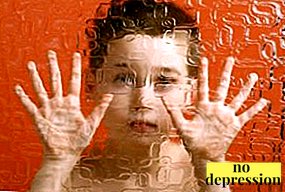
How to recognize a lie?
This is a whole science, how to determine whether your interlocutor is lying or not. Such knowledge is often used by detectives, law enforcement agencies to solve a crime and learn the truth. Also, this knowledge will be useful and ordinary people in everyday life, so as not to become a victim of a fraud or just to be deceived by another person.
However, think carefully before disclosing a lie. After all, a person lies for a reason, and sometimes a sweet lie is better than a bitter truth ...
So, consider the main signs of a lie.
How to recognize a lie by body language:
• A person who lies usually moves a little, he is constrained.
• Slightly jerky hand movements, unsure.
• The person begins to touch his face, touch his nose and scratch his ear.
• A liar always looks away and cannot calmly look a person in the eye.
• Note that a person who lies will never bring his hand to the heart area.
Emotions:
• The liar is not capable of displaying deep emotions, he seems pensive, and his reaction may be overdue.
• The words of such a person usually do not correspond to his emotions and actions. Even if he says that he likes something, his expression can be sad, and only then he will smile.
• The severity and gloom of the face, even when a person hears a declaration of love.
• For a liar, a change in facial expression is usually noticeable only on the lips when he speaks. True emotions are hard to hide: if a person truly rejoices, then his whole face changes.
Interaction with people:
• A person who lies, constantly wants to turn away, shuffles from one foot to the other, feels as if he is not at ease.
• In the hands of such a person there is always some object, such as a cup, pen, book. By this, he tries subconsciously to shut out from you.
Words and Speech:
• The question asked is rephrased in response. For example, to the question "Have you eaten a caviar sandwich?" a liar is most likely to answer "No, I did not eat a caviar sandwich."
• During a conversation, in moments of pause and silence, the liar feels uncomfortable, begins to behave unnaturally, turns his head, looks around.
• His speech is emotionless, monotonous. A person who speaks the truth will speak loudly, with gestures and facial expressions that accompany him. Liar does the opposite.
If you have doubts that the person with whom you are having a conversation is lying, then try changing the topic of conversation. Liar willingly and even with relief will support the topic. But the one who spoke the truth will be a little upset and will want to return to the previous topic.
The liar very often brings jokes and sarcasm into his speech. Thereby trying to ward off suspicion.
However, if all these signs coincided with your interlocutor, you should not immediately accuse him of lying, perhaps he has such a character. It is worth another time to double-check, so as not to spoil the relationship with a person.



